Resolution 18: 'Fulcrum' for amending the Land Law
At the 5th Central Conference, General Secretary Nguyen Phu Trong stated: "Many people became rich thanks to land, but there are also many people who became poor because of land, even went to jail because of land, lost the relationship between father and son, and brothers because of land...".
 |
Saying so is enough to see the complexity and importance of the problem. Land is a difficult, complicated, sensitive issue, the source of people's livelihood. This is also a great resource of the country and is an important issue for the stability and sustainable development of the country.
Therefore, continuing to innovate and improve institutions and policies, promptly removing obstacles in land management and use will be an important basis for creating new resources and driving forces for development.
For that reason, Resolution 18 issued by the Central Committee on "Continuing to innovate and perfect institutions and policies, improving the effectiveness and efficiency of land management and use, creating momentum to turn our country into a high-income developed country" is considered an important milestone, with new breakthroughs, aiming at solutions to unlock land resources, creating momentum for development.
Resolution 18 of the Central Committee continues to affirm the Party's consistent viewpoint that land belongs to the entire people, the State is the representative owner and unified manager. Land use rights are a special type of property and commodity, but not ownership rights. The Resolution has many new points in terms of viewpoints, objectives, tasks, solutions and organization of implementation of the Resolution.
Accordingly, regarding land use planning, the Resolution emphasizes that the State ensures sufficient resources to establish land use planning and sectoral and field planning that uses land to limit abuse, corruption, and negativity.
The Resolution also sets out the task of perfecting regulations to ensure publicity and transparency in land allocation, land lease, land use purpose conversion; compensation, support, resettlement, and land recovery.
The resolution also stipulates the removal of the land price framework, and requires a mechanism and method to determine land prices according to market principles. At the same time, the Central Government also stipulates higher tax rates for those who use large areas of land, many houses, and speculate on land.
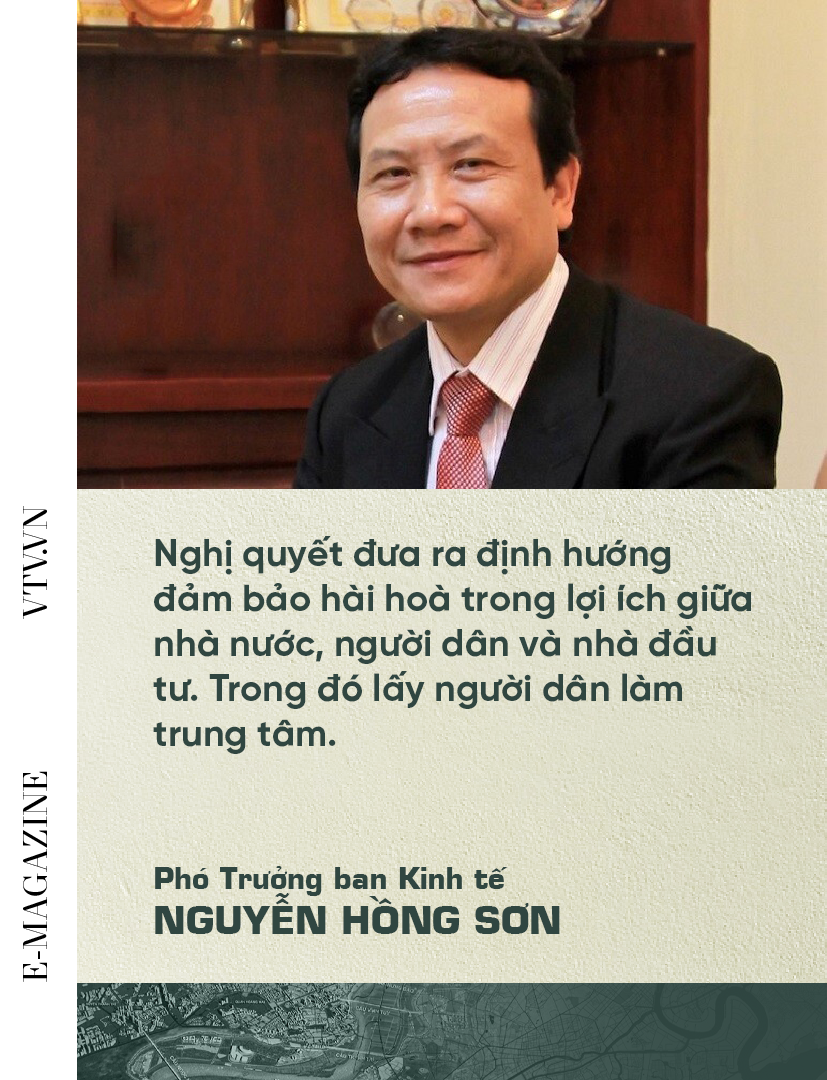 |
Summarizing Resolution 18, Deputy Head of the Central Economic Commission Nguyen Hong Son said that there are three major new points. The first point is that the Resolution aims to enhance the role of the market in land management and use. The second point is that the Resolution enhances the effectiveness and efficiency of State management of land, resolutely preventing and combating corruption, negativity and waste in the land sector. The third point is that the Resolution sets out the direction of ensuring harmony in interests between the State, people and investors, in which people are the center.
"Resolution 18 enhances the role of the market in land management and use, so land will be allocated more effectively. When allocated more effectively, it will be used more effectively. Resolution 18 orients the improvement of the State's management capacity. The State's management capacity will be more effective and efficient, which will also lead to better discipline in land management and use. Thereby, reducing negativity and corruption in land management and use," Mr. Son assessed.
According to the Deputy Head of the Central Economic Commission, if harmony is ensured between the interests of the State, the people and investors, land will be used more effectively.
 |
One of the most notable points of Resolution 18 is the provision on abolishing the land price framework, at the same time requiring a mechanism and method to determine land prices according to market principles, and stipulating the functions, tasks and responsibilities of the agency responsible for determining land prices. The central government develops criteria and procedures for inspecting and supervising localities in developing land price tables. The provincial People's Council decides, inspects and supervises the implementation of land prices.
Assessing this regulation, according to Prof. Dr. Dang Hung Vo (Former Deputy Minister of Natural Resources and Environment), the current land price framework has no effect on local land management and valuation. Mr. Dang Hung Vo gave examples of Hanoi and Ho Chi Minh City, where the most expensive land is said to be 1 billion VND/m2, but the land price framework is only around 250 million VND/m2.
"I myself asked the leaders of Hanoi and Ho Chi Minh City directly why the land price list is so low. Such low prices mean that people complain of being disadvantaged. And officials sometimes make a decisive move that can benefit someone. Leaving a difference between the State land price and the market land price is a taboo in land price management," said Mr. Dang Hung Vo.
According to Mr. Dang Hung Vo, with Resolution 18, seeing that the management by land price framework is not beneficial, it should be removed. Instead, focus on directly managing land pricing at the local level.
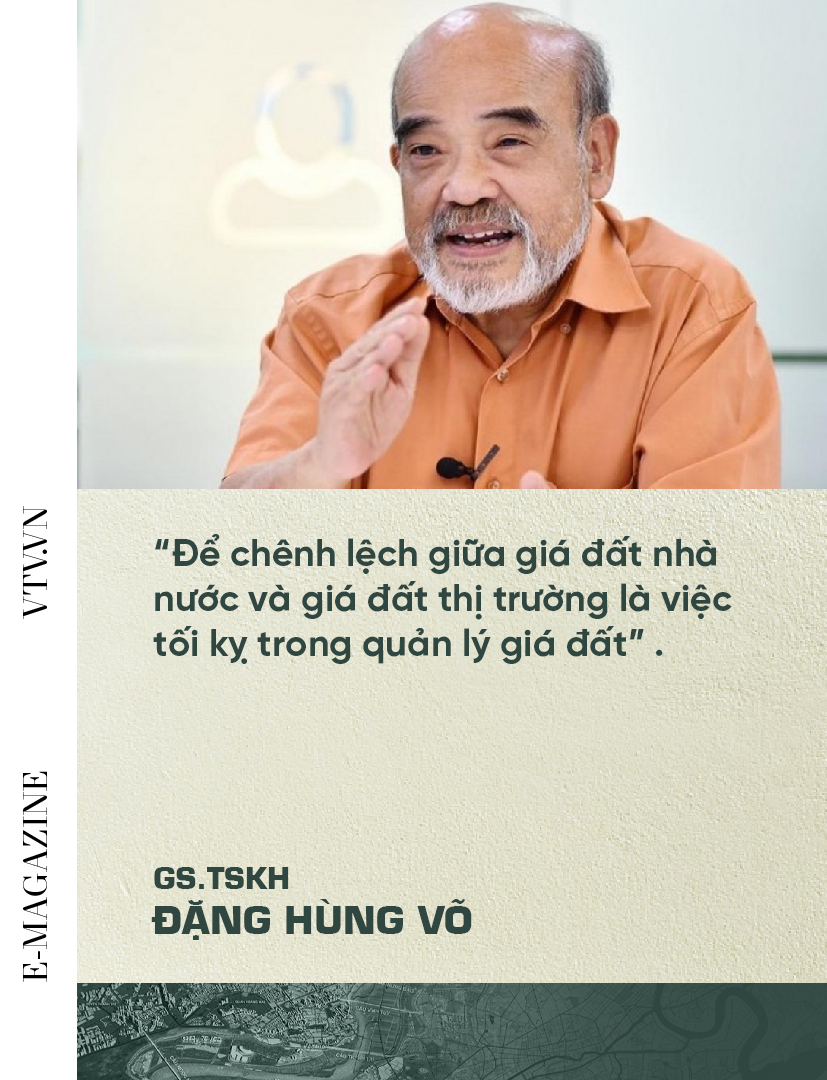 |
Regarding the method of determining land prices according to market principles, Deputy Head of the Central Economic Commission Nguyen Hong Son said that a series of accompanying conditions are needed and Resolution 18 has clearly stated this.
Firstly, it is necessary to build a land database not only in terms of quantity, area but also in terms of value. The land database is not only static but also dynamic to track changes in land transfer. Build a unified and modern land information system.
Second, we must ensure the independence of the land valuation council and improve the capacity of land valuation consultancy units. Improve the capacity and ethics of valuers. Third, we must ensure transparency in the land transaction process: no cash, transactions through the floor and strict handling of violations.
 |
Over the past three years, according to statistics, the Central People's Reception Committee has received nearly 100,000 people coming to file complaints, with a total of nearly 24,500 cases, of which more than 70% of the cases were related to land, accounting for 81% in 2021.
According to the head of the Central Citizen Reception Committee Nguyen Hong Diep, the number of complaints will certainly decrease sharply after Resolution 18 on land comes into effect, because the resolution requires publicity and transparency in all stages of land allocation, land lease and land price determination.
"One of the main issues of prolonged and urgent complaints and denunciations is related to land. If the auction is transparent and public, it will limit negativity, and the planning and land use planning according to Resolution 18 will be made for each plot of land. Thus, the land users themselves, the State, and the people will know about the public planning. This will help reduce complaints and denunciations from the people," said Nguyen Hong Diep, Head of the Central Citizen Reception Committee.
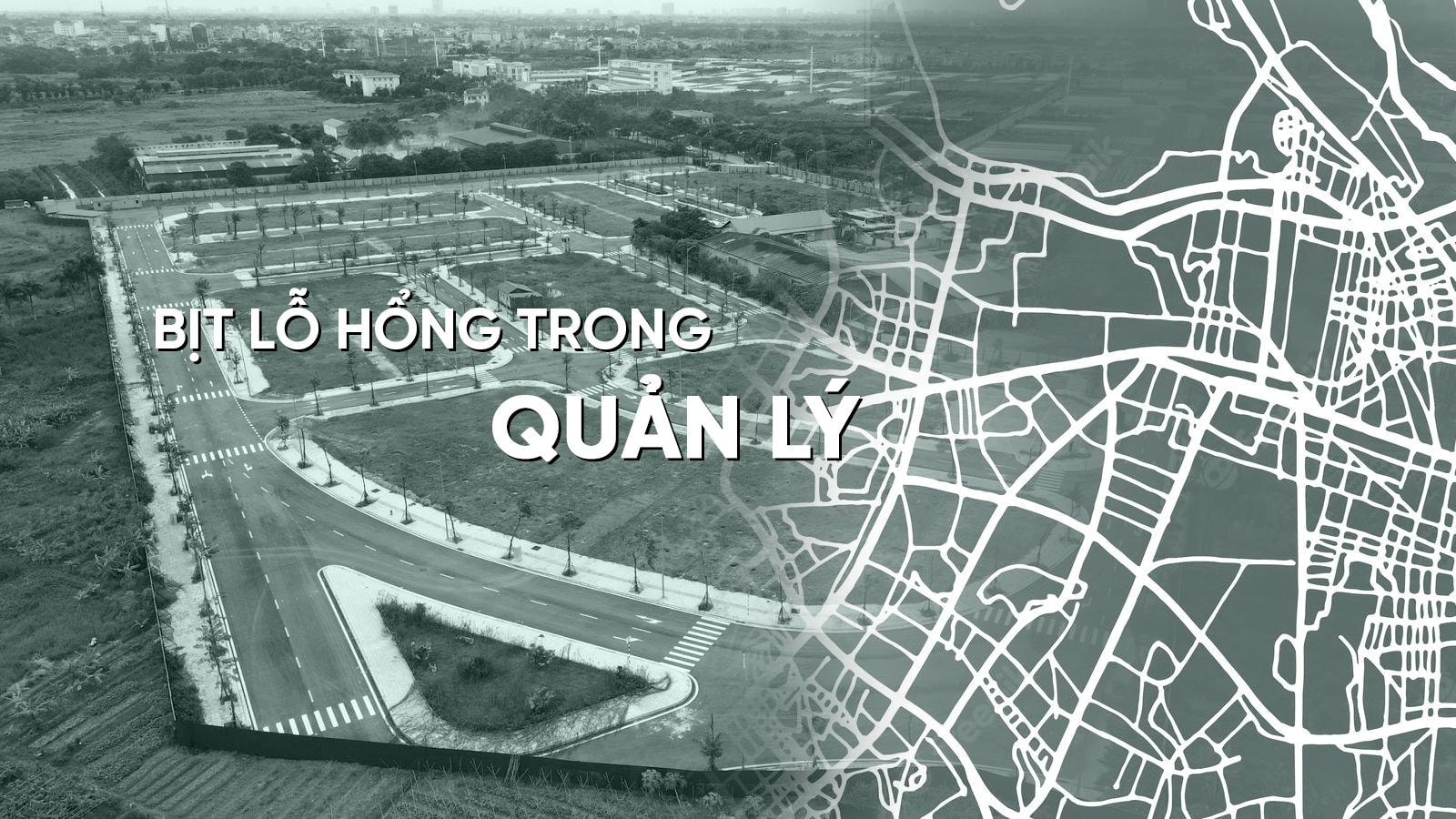 |
Over the years, in most cases of land corruption in localities, management officials have taken advantage of loopholes in the law to profit from the lack of transparency in land allocation and leasing, and determining land prices that are not close to market prices. To overcome this loophole, Resolution 18 requires increased transparency when removing the land price framework and establishing a market pricing mechanism.
"Following the spirit of Resolution 18 will ensure stability, sustainability, and longevity, instead of fluctuating prices. Instead of unprofessional investors or those with poor financial capacity and poor investment quality still being able to participate in the market, it will screen and ensure that buyers are real buyers and sellers are real sellers," said Lawyer Truong Thanh Duc - Hanoi Bar Association.
 |
Land is a special asset, a basic means of production and an extremely valuable resource. However, the management, exploitation and use of this resource still have many shortcomings. The phenomenon of land being left fallow and wasted still occurs in many places.
Nearly 70 years old this year, having spent her whole life working in the fields, Mrs. May (Tien Hai town, Tien Hai district, Thai Binh) has never seen so many farmers abandon farming as now. In the fields, it is not difficult to see abandoned fields.
"Many households don't plant rice, they let them plant rice for free," Ms. Hoang Thi May shared.
According to Nguyen Nhu Cuong, Director of the Department of Crop Production, Ministry of Agriculture and Rural Development, people abandoning farming leads to waste of land resources, waste of investment capital in irrigation infrastructure and roads serving rice production.
In big cities like Hanoi, Ho Chi Minh City and especially coastal areas, the situation of abandoned "golden land" is not uncommon. "Golden land" but cannot "give birth" to gold.
"Land is a very important resource. We must know which investors and their capabilities are, and the contract must be clearly stated. We cannot leave 5-10 hectares, or even hundreds of hectares, for 5-7 years. People just want to occupy the land," said Mr. Tran Ngoc Chinh, Chairman of the Vietnam Urban Planning and Development Association.
It is estimated that nationwide there are over 3,200 projects with an area of up to 85,200 hectares of land that have been allocated, leased, or have had their purpose of use changed by the State, but the project investors have been slow or have not put the land into use for many years.
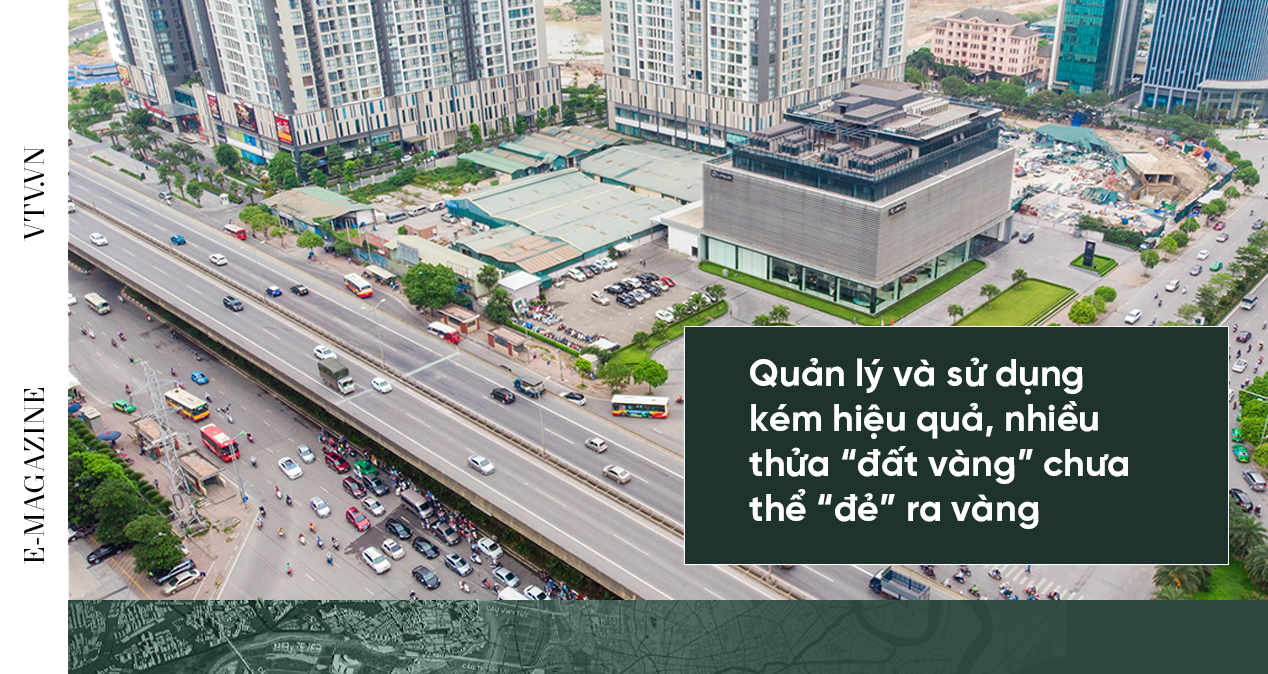 |
Assessing the situation of abandoned land, slow to be put into use, according to Deputy Head of the Economic Committee Nguyen Hong Son, this shows that land management and use are not really effective. This situation has been clearly identified by the Central Government and Resolution 18 has proposed solutions to this problem from two perspectives: Administrative and economic.
Regarding administration, Resolution 18 requires specific and synchronous sanctions to handle cases of land allocation and lease but not being put into use or being slow to put into use. Resolution 18 also requires resolutely reclaiming land used for the wrong purpose, especially land in advantageous and highly profitable locations.
In terms of economics, Resolution 18 requires a review of the legal policies on agricultural and non-agricultural land use taxes. Thereby, it aims to develop legal policies on land use taxes in accordance with international practices, in accordance with levels, conditions and with an appropriate roadmap. In addition, it stipulates higher tax rates for those who use large areas of land, many houses and speculate on land, are slow to put land into use or leave land fallow. Next is to build a mechanism for organizations and individuals to participate in investment projects through forms such as contributing land use rights, leasing land use rights or transferring land use rights, as well as requiring the establishment of a bank for leasing agricultural land.
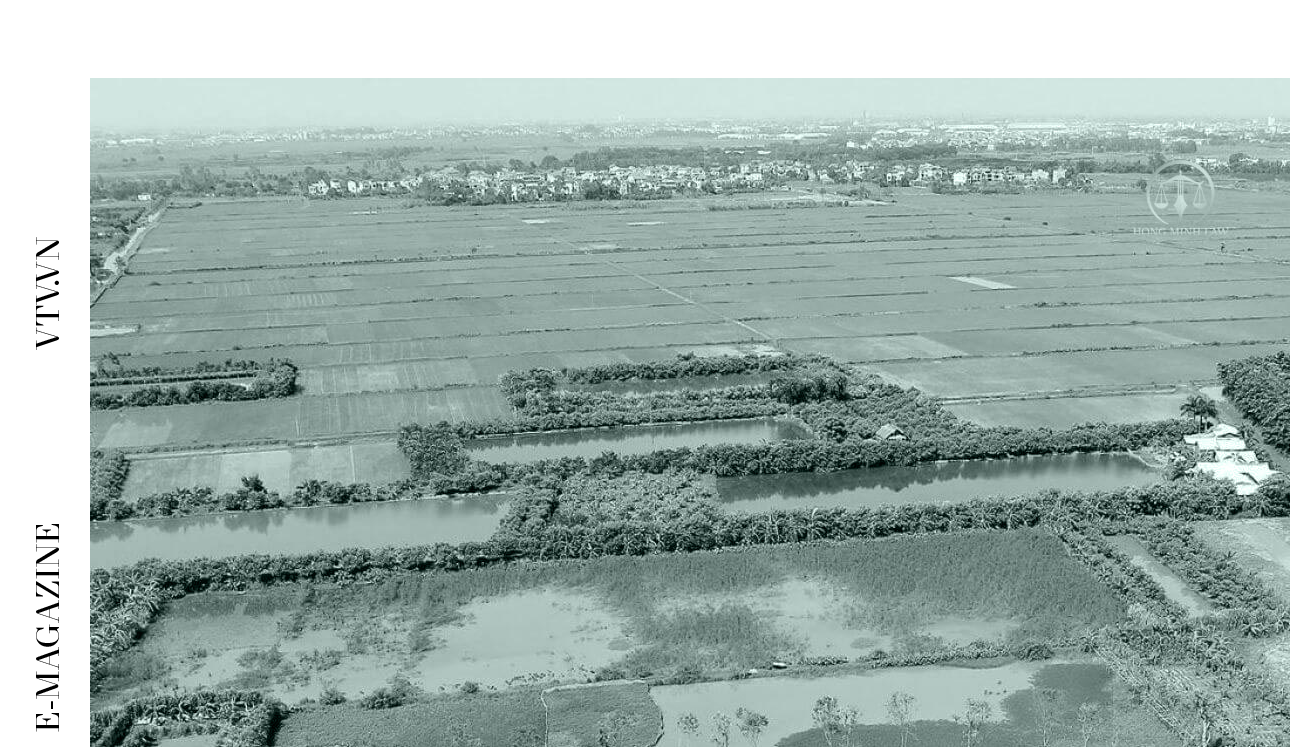 |
Explaining the regulation on higher tax rates for people using large areas of land, many houses, land speculation, slow land use, and abandoning land in Resolution 18, Professor, Dr. Dang Hung Vo said that people can rest assured that this is not a uniform tax increase but only increases taxes in cases of many houses, a lot of land, and cases of not putting land into use.
Other cases, such as the poor, ethnic minorities, and people who have to undertake tasks such as food security and environmental protection, are all exempted. According to Mr. Dang Hung Vo, the majority of people are not subject to increased real estate taxes; only speculators are subject to increased taxes.
 |
Resolution 18 sets a target of completing the amendment of the 2013 Land Law and a number of related laws by 2023.
Analyzing this goal, Deputy Head of the Central Economic Commission Nguyen Hong Son said that Resolution 18 sets out the requirement to perfect the policy institutions, land management and use in accordance with the institution of developing a socialist-oriented market economy, in which the focus is on amending the 2013 Land Law and other related laws. Ensuring uniformity, thereby creating a favorable legal corridor. The amendment must be in accordance with the spirit of Resolution 18.
According to Mr. Son, when the amendment is completed, the legal corridor will help fundamentally resolve the problems that have existed in land management and use for a long time, for example: Land originating from state-owned agricultural and forestry farms; national defense and security land combined with production and economic construction activities; land of production facilities and units with large concentrations of people that have moved out of large urban areas; or land reclaimed from the sea; religious land...
Along with that, Resolution 18 also requires the Land Law (amended) to overcome waste in land use, land desertification, degradation, pollution, and negative corruption in land.
In addition, it is also required that the amendment of the 2013 Land Law must aim to improve the effectiveness and efficiency of State management of land. Arouse land potential and maximize land value. Land must be used for the right purpose and economically, effectively and sustainably.
"Finally, the revised Land Law ensures the harmony of interests between people, businesses, and the State. It takes people as the center and leaves no one behind," Mr. Nguyen Hong Son emphasized.
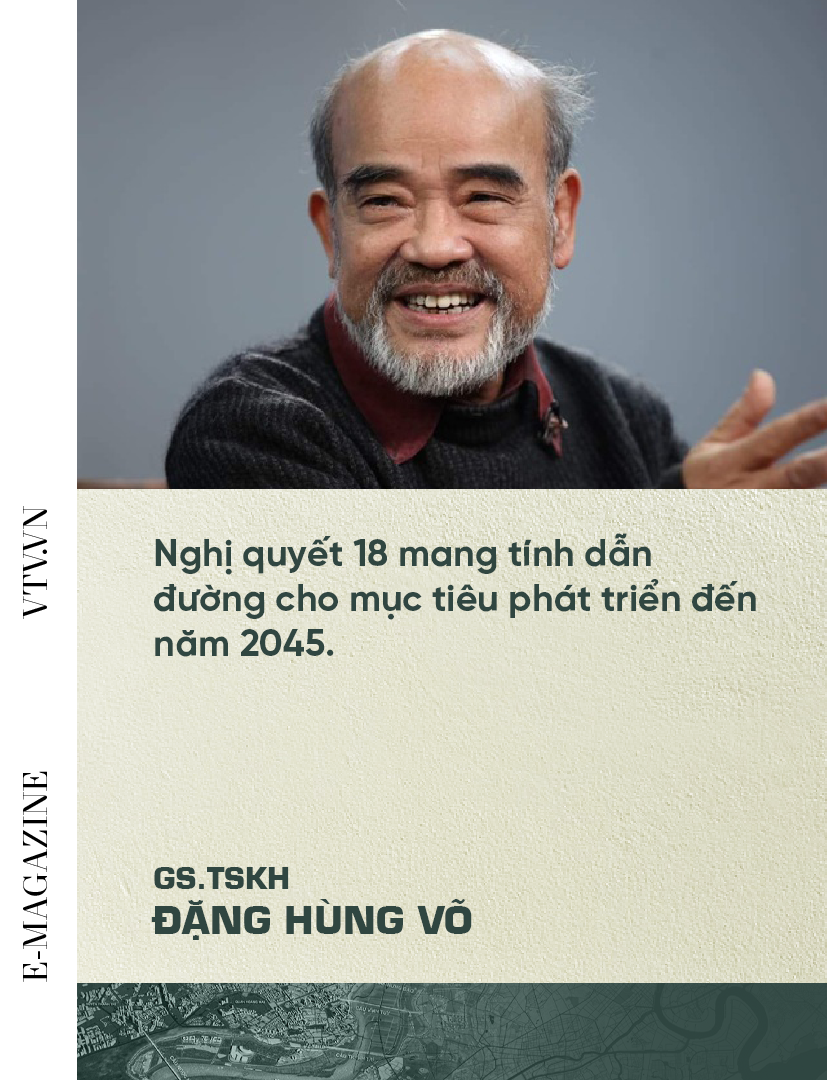 |
According to Professor, Dr. Dang Hung Vo, Resolution 18 not only looks at correcting the remaining bottlenecks of the 2013 Land Law but also raises a much higher issue of what to do to have land contribute to the process of transforming our country from a country in its current state to a high-income industrialized country.
"That means putting land in a certain role in economic development and contributing to the Vietnamese economy. The resolution guides the development goals until 2045," said Mr. Dang Hung Vo.
Speaking more about Vietnam's economic development roadmap, Deputy Head of the Propaganda Department Nguyen Hong Son said that the goal of Resolution 18 is to help solve existing problems left over from history while still meeting new requirements of development practice. The Resolution of the 13th National Party Congress sets out specific goals and roadmaps for the country's development until 2025, 2030 and 2045.
"Resolution 18 not only helps to set important political foundations for amending the 2013 Land Law and other related laws to handle existing problems, but also creates a foundation and motivation for land to be used and managed effectively. Thereby, helping us achieve the goals set out in the Resolution of the 13th National Party Congress," Mr. Son emphasized.


